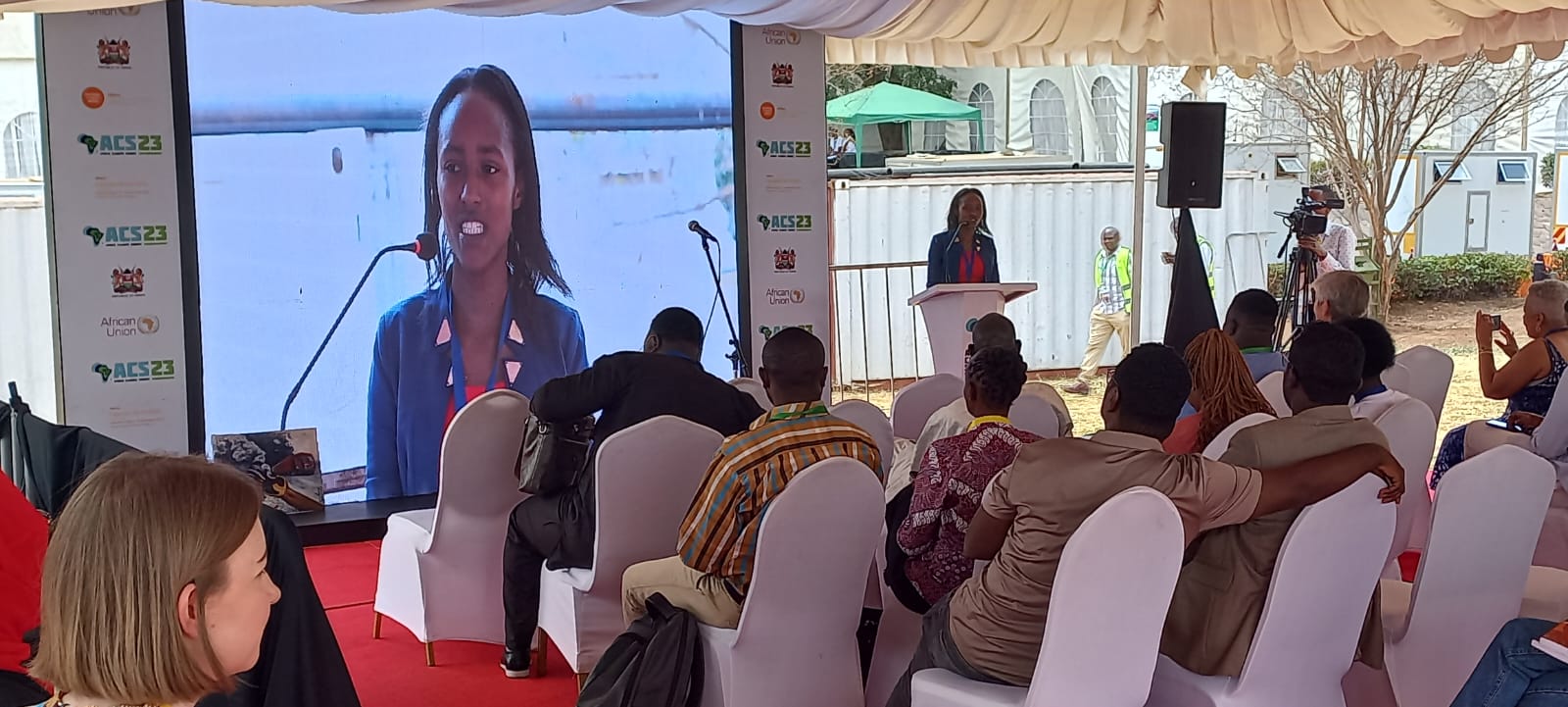The Nairobi Declaration on Climate Change, adopted during the Africa Climate Summit (ACS) on 4-8 September 2023, reflected the collective position of African Heads of State and Governments on climate change and its impacts on the continent. The Nairobi Declaration also serves as the basis for Africa’s common position in global processes on climate change, such as the 28th Conference of the Parties to the UN Framework Convention on Climate Change held on November 30-December 12, 2023 in Dubai.
While the Nairobi Declaration on Climate Change has provisions that hope to address critical climate issues, and demonstrate African governments’ commitments to addressing them, IBON Africa raises concerns over some provisions that shortchanged the African people.
- The declaration “commits to strengthen actions to halt and reverse biodiversity loss, deforestation, desertification, as well as to restore degraded lands to achieve land degradation neutrality”. It is essential to recognize that mitigation investments in the region are promoting false solutions, such as carbon trading, that can result in resource plunder and human rights violations, such as the eviction of the Ogiek in the Mau Forest under the guise of environmental conservation. Carbon trading is essentially buying or selling permits to pollute. While carbon trading is often presented as a means of offsetting emissions, carbon trading projects have led to the displacement of indigenous communities from their ancestral lands, undermining their rights and impacting their livelihoods. This commitment evidenced by the many pledges made at the Summit, which were predominantly focused on mitigation efforts, giving little attention to the critical aspect of adaptation. These mitigation practices continue to promote Global North investments and interests in the region in the name of supporting the Global South to mitigate the climate crisis.
- Critical issues such as climate change adaptation and resilience-building measures did not receive the urgent attention they deserve, considering that the continent is the most affected by climate change. Given Africa’s vulnerability to climate impacts, a more balanced approach should be considered – adaptation must be prioritised as an urgent concern and not just as a peripheral issue in the climate change discourse.
- The declaration “recognises that Africa is not historically responsible for global warming but bears the brunt of its effects, thus impacting lives, livelihoods, and economies.” However, the declaration does not put emphasis on, and does not demand for reparations from the Global North, transnational corporations (TNCs), and Northern-led institutions to redress historical injustices associated with climate change. African governments should continuously demand the Global North’s mandatory, unconditional provision and transfer of financial and technological resources to support the region’s adaptation and mitigation practices. Climate finance should be appreciated as compensation for decades of resource plunder and extraction. It should also be new and additional to the long-standing and unmet official development assistance (ODA) commitments by developed countries.
- The Nairobi Declaration’s call to action does not reflect respect to biodiversity, value of nature and planet. Respect for the environment means a rejection of market-led mechanisms imposed on natural resources. For instance, carbon trading schemes have led to environmental injustice. The European Union Emissions Trading System (EU ETS) allows industrial facilities to continue emitting carbon while purchasing offsets from projects in other countries, leading to localised pollution and social inequities. Forest Carbon Offsets Initiatives like Reducing Emissions from Deforestation and Forest Degradation (REDD+) have led to the displacement of indigenous communities and failed to address the underlying drivers of deforestation, such as unsustainable logging practices or land tenure issues.
- While the declaration outlines broad commitments and principles, it is essential to note that it fails to include specific action plans and timelines for achieving these goals. Clear and measurable targets can help ensure accountability and track progress on pledged climate finance from Global North countries and institutions.
- The declaration mentions the Sustainable Development Goals (SDGs), emphasising the urgency of achieving them by 2030. Given the intertwined nature of climate action and sustainable development, future discussions should instead explore how climate initiatives can contribute directly to the realisation of people’s rights and sovereignty, particularly in areas such as energy access, health, and poverty reduction. Notably, the summit did not adequately address health in the agenda, despite its inherent connection to climate change. Notably, the summit did not sufficiently discuss health in the agenda despite its inextricable link to climate change.
- Lastly, while the declaration briefly mentions just transition, it falls short in emphasising the definition of a just transition and how to effectively implement it within Africa’s narratives and perspectives. A just transition means decarbonisation for the global North, recognising their historical responsibility for years of emissions. Simultaneously, allocate the remaining carbon space for the development needs of the global South nations.
IBON Africa recognises the significance of the Nairobi Declaration for climate action in Africa. However, we call for a more inclusive and people-centred approach on climate action while also prioritising meaningful involvement of communities and civil society organisations in shaping policies and initiating their own actions. We are committed to building societies where the people enjoy all human rights and fundamental freedoms, and in a way that the world we create does not unjustly deny the same for future generations. #




